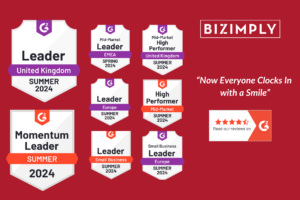How To Empower The Modern-Day Manager
The UK currently has its lowest level of unemployment since 1973, ironically just around the time Britain joined the EEC. Various recessions and difficult global trading conditions meant anyone who entered the workforce from the late 1970s and through the 1980s and early 1990s was glad to have a job at all (in 1984 unemployment peaked at 12%, and again at nearly 11% in 1993). Those people, now among the likes of store managers and above, had to put up with practices and behaviours that people entering the workforce today quite rightly simply will not accept. This is nothing to do with millennials or any of the other demographic cohorts you care to name. It is simple economics. Employees will not put up with poor management when they can leave a job knowing that they will soon find a better one.
A person who entered the workforce in 1973 at 18 years of age will turn 65 in 2020 and is probably moving toward retirement; however the current cohort of senior managers (45-65 years of age) probably entered the workforce during those difficult times and may have experienced (or suffered) difficult management practices. So we should know that giving people a hard time or imposing unfair work practices is only going to demotivate employees in the present climate. On the other hand, this current generation of senior managers also often has an appreciation of hard work and its value, which they may not always perceive in the current generation.
The answer to this dichotomy is that good team management is more important than ever. 70% of a team’s engagement is determined solely by the manager, according to the best-selling Gallup study of the future of work, It’s the Manager. And engagement – the way managers treat and interact with employees – drives retention. Great store managers and leaders have long since recognised the value of the carrot over the stick, this is not based on pop psychology but proven hard data on employee attraction and retention and borne out by research.
Staff attitude is a critical success factor
An incredibly large number of UK restaurants and bars went into company voluntary arrangement (CVA) in 2018, according to research from accountancy group UHY Hacker Young, which reported that the UK’s top 100 restaurants made a £93m loss in the last year.
Why do so many fail? To put it very simplistically, they are paying out more than they are bringing in. And their most perishable asset is not meat and vegetables but human labour time. Once it is gone, it is gone for ever. It is therefore critically important to the success of any establishment that it has the right people in the right place and the right position, i.e. doing the right job. But even more important than any of these is that they have the right attitude to their work, customers and colleagues.
“More than 90% of customers who are dissatisfied with your product will never complain; they’ll simply leave” this according to Andrea Stojanović, in a well-researched article quoting studies from Accenture, Statista, Microsoft, Segment and others.
What is the real driver of customer satisfaction? In hospitality, I would contend it is staff attitude; research from Kenvale University and numerous other studies back up this contention. Happy staff with the right attitude to the customer make for satisfied, loyal advocate customers, which every successful hospitality business needs if it is to thrive.
However, according to a KAM Media study, only eight per cent of UK customers believe employees go the extra mile to ensure customer satisfaction. Only 25% described staff as customer focused. So there is plenty of room for improvement on staff attitudes.
Improving staff attitude and the customer experience – it’s up to the manager
These studies indicate some simple truths: we know satisfied customers are critical to success, we know staff attitude is critical to customer satisfaction, and we also know that staff engagement (and attitude) comes down to their frontline manager. In hospitality and retail that means the store managers (or GM) are at the heart of the operation.
Everybody wants something from the GM, including the store managers or owner and the administrative team.
Above-store management want control, they like to be in touch with how the unit is performing, often in real time. The GM needs to be easily able to satisfy this need for information and control.
Other above-store functions require compliance to HR rules and policies, to payroll timelines, to operational imperatives, to procurement budgets, to kitchen standards etc. The GM is responsible for delivering these details to the above-store team and informing them about the context.
With all of the above-store demands it is a wonder that GMs have the time to do their real job, keeping their customers and staff satisfied. Numerous studies and experience inform us that what the in-store team wants above all is first and foremost clarity: clarity about their role, their working hours and their performance, and second coaching, to be able to perform their jobs well. Staff who are clear about their purpose and are coached effectively will deliver great service and therefore customer satisfaction.
Whatever your brand promise is, the customer wants that to be delivered, then he or she will go away happy, and become a loyal brand advocate.
So if we put all this together, we can answer the question, “What makes a successful manager?” Our research and experience point to four key indicators of success:
- BRAND. Great GMs understand the company’s brand and culture and they are passionate about the brand proposition.
- CAN DO. They have a can-do attitude, not just for the big things but also for the details. If the bathroom needs cleaning, they will get it cleaned, or clean it themselves. If someone is struggling with a bag and a tray, they will go and lend a hand – they do not stand on ceremony.
- CUSTOMER CENTRICITY. They have a customer-centric orientation. They understand why the customers are there, and how the customers’ experience and loyalty drive a better business.
- CAPABLE. The standout GM is organised and capable. For example, they can multi-task and cope during the busiest periods, while keeping a cool head.
These are the attributes that a company looks for in a store or restaurant manager and it pays to remember this not just when hiring but when managing the manager. For example: if a manager has all of the above attributes, there is no point, and it may indeed be counter-productive, to be too prescriptive. But there are a few things you should do when it comes to managing the manager:
Focus on the Why not the How
In other words, focus on the “why” with good coaching and mentoring and let the store managers or general managers figure out the “how”. At Bizimply we see that especially in franchise businesses, the most successful managers are the ones that feel most empowered – managers who are allowed to manage those elements of the brand promise that they can control.
Train in leadership to give confidence
It’s no bad thing to give GMs formal training in leadership, because even if they are natural leaders, this will provide them with the confidence that what they are naturally doing is right.
Provide technology that makes life easier
Finally, technology has a part to play, so long as it is the right kind of technology, by which we mean technology that helps rather than controls. Controlling technology typically adds to the GM’s workload, whereas technology that is helpful takes administrative work away, allowing the manager to focus on managing effectively on the floor with their people and customers.
Over the course of 2022, Bizimply will be further exploring all of the root causes and solutions to building great businesses through GM empowerment. For more information or to book a free consultation, please contact us today!













